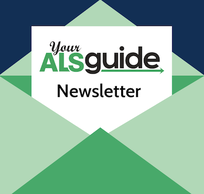|
If you are experiencing respiratory symptoms like shortness of breath, noninvasive ventilation (NIV) can provide helpful breathing support through a mask that you can put on and take off as needed.
Studies have shown that noninvasive ventilation can alleviate respiratory symptoms, improve quality of life, and help you live longer. It is one of the most effective interventions available for people living with ALS. You can receive noninvasive ventilation either through a bilevel (BiPAP) machine or a portable ventilator (often referred to by the brand name Trilogy). Bilevels (BiPAPs) are smaller and less expensive than portable ventilators, but they are not portable. Bilevels are primarily prescribed for nighttime use. Portable ventilators have more settings and functions and are more equipped to support your breathing during the day as well.
Portable ventilators have internal batteries, and you can buy backup batteries if needed. This means you can unplug the device and receive breathing support while moving around your home, going out, or traveling. Portable ventilators typically weigh under 12 pounds and come with travel bags that can hook onto the backs of wheelchairs. Your medical team will recommend the device they think is best for you based on your breathing measurements and symptom progression. If you start with a bilevel, you can switch to a portable ventilator when needed. |
|
Receiving noninvasive ventilation (NIV) is very different from invasive ventilation, which involves creating a surgical opening in your trachea and becoming dependent on a ventilator to breathe for you 24/7. Portable ventilators can be used for both invasive and noninvasive ventilation.
How can I get a portable ventilator?
|
Your ALS clinic team or neurologist will monitor your breathing every visit and let you know when you qualify for a portable ventilator.
You will need to have a face-to-face meeting with your neurologist, usually during a clinic visit, to get your portable ventilator prescribed for noninvasive use. Your neurologist will need to have pulmonary function test results and documentation that the durable medical equipment (DME) company can use to process the order through insurance. A respiratory therapist from the DME company will then deliver your ventilator and train you and your caregivers how to use it. If you are using a bilevel and it is still considered a rental, you will need to return it when the portable ventilator is delivered. |
|
How much will I have to pay?
|
Portable ventilators are considered long-term rentals and are covered through Medicare, Medicaid, and most private insurance plans.
Portable ventilators are more expensive than bilevel (BiPAP) machines, so the monthly payment will likely be higher. Supplies such as masks, tubing, filters, and humidifiers, as well as periodic maintenance, will be included in your monthly rental fee. |
|
Medicare will cover 80% of the cost of your monthly rental. Medicaid, supplemental plans, and secondary private insurance should pay for the remaining 20%. If you have Medicare but do not have Medicaid, a supplemental plan, or secondary private insurance, you will likely have to pay the remaining 20% out of your own pocket.
If you do not qualify for Medicare—but have Medicaid and/or private insurance—find out what your durable medical equipment (DME) benefits will cover. If you have a Medicare Advantage Plan, be sure to ask about your DME benefits.
If you are facing out-of-pocket expenses that you cannot afford, talk with your DME provider and/or local ALS organization about financial assistance options. Respiratory equipment is not generally available from loan closets, but you can always ask.
If you do not qualify for Medicare—but have Medicaid and/or private insurance—find out what your durable medical equipment (DME) benefits will cover. If you have a Medicare Advantage Plan, be sure to ask about your DME benefits.
If you are facing out-of-pocket expenses that you cannot afford, talk with your DME provider and/or local ALS organization about financial assistance options. Respiratory equipment is not generally available from loan closets, but you can always ask.
When your portable ventilator is delivered, a respiratory therapist will bring a variety of mask options and recommend the one that will be the most appropriate for you. This may depend on how you breathe at night and how well the different masks fit.
What if I’m having trouble using my ventilator?
Some adjustments may be needed when you first start using a portable ventilator. If you are having trouble, schedule another visit with your respiratory therapist. Together, you should be able to resolve the issue. The pressures may need to be adjusted, your mask may be leaking, or you might simply need more time to get used to it. Whatever the problem, the benefits you’ll receive from your ventilator are too great to give up and stop using it.



